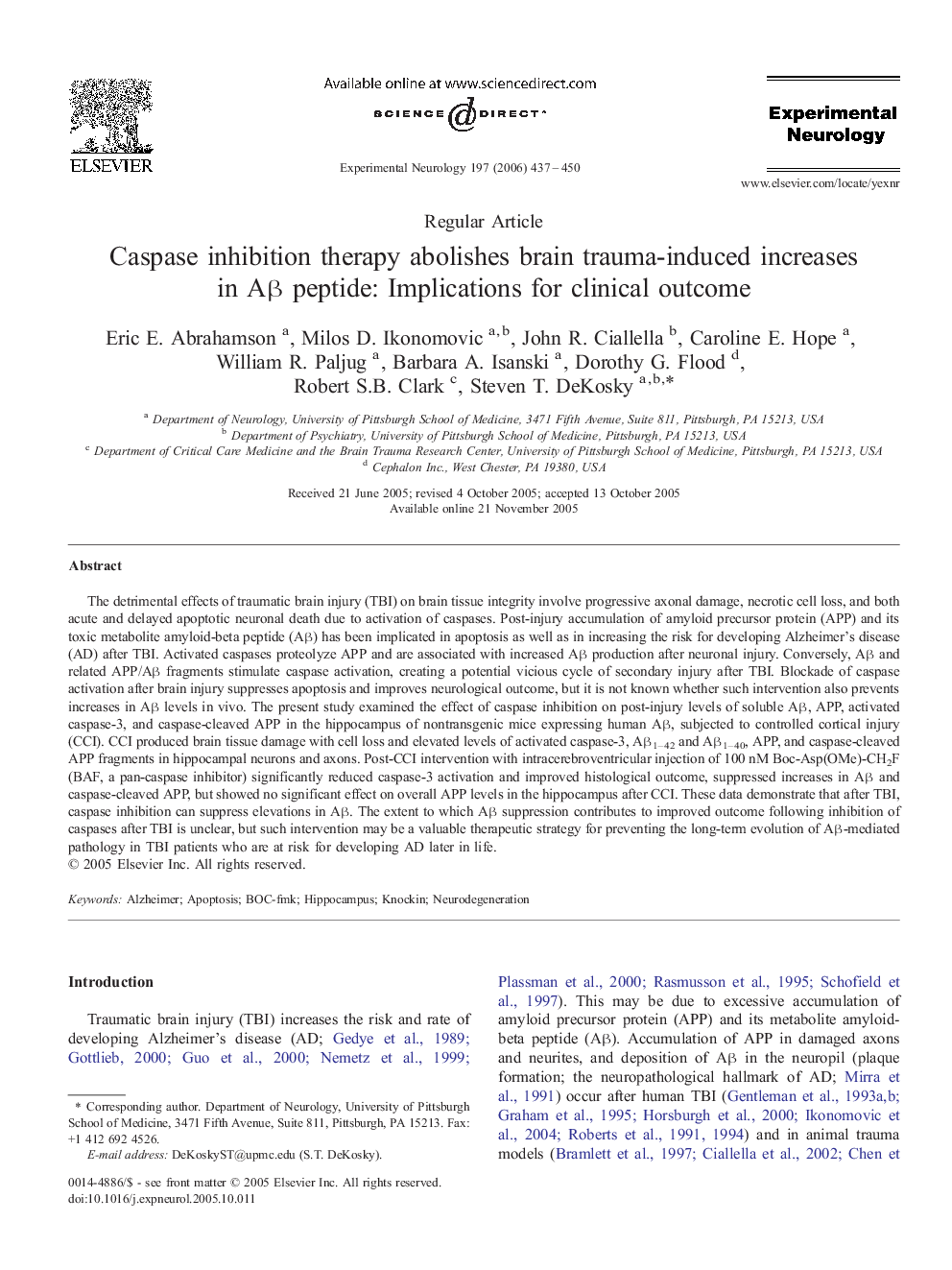| کد مقاله | کد نشریه | سال انتشار | مقاله انگلیسی | نسخه تمام متن |
|---|---|---|---|---|
| 3057641 | 1186605 | 2006 | 14 صفحه PDF | دانلود رایگان |

The detrimental effects of traumatic brain injury (TBI) on brain tissue integrity involve progressive axonal damage, necrotic cell loss, and both acute and delayed apoptotic neuronal death due to activation of caspases. Post-injury accumulation of amyloid precursor protein (APP) and its toxic metabolite amyloid-beta peptide (Aβ) has been implicated in apoptosis as well as in increasing the risk for developing Alzheimer's disease (AD) after TBI. Activated caspases proteolyze APP and are associated with increased Aβ production after neuronal injury. Conversely, Aβ and related APP/Aβ fragments stimulate caspase activation, creating a potential vicious cycle of secondary injury after TBI. Blockade of caspase activation after brain injury suppresses apoptosis and improves neurological outcome, but it is not known whether such intervention also prevents increases in Aβ levels in vivo. The present study examined the effect of caspase inhibition on post-injury levels of soluble Aβ, APP, activated caspase-3, and caspase-cleaved APP in the hippocampus of nontransgenic mice expressing human Aβ, subjected to controlled cortical injury (CCI). CCI produced brain tissue damage with cell loss and elevated levels of activated caspase-3, Aβ1–42 and Aβ1–40, APP, and caspase-cleaved APP fragments in hippocampal neurons and axons. Post-CCI intervention with intracerebroventricular injection of 100 nM Boc-Asp(OMe)-CH2F (BAF, a pan-caspase inhibitor) significantly reduced caspase-3 activation and improved histological outcome, suppressed increases in Aβ and caspase-cleaved APP, but showed no significant effect on overall APP levels in the hippocampus after CCI. These data demonstrate that after TBI, caspase inhibition can suppress elevations in Aβ. The extent to which Aβ suppression contributes to improved outcome following inhibition of caspases after TBI is unclear, but such intervention may be a valuable therapeutic strategy for preventing the long-term evolution of Aβ-mediated pathology in TBI patients who are at risk for developing AD later in life.
Journal: Experimental Neurology - Volume 197, Issue 2, February 2006, Pages 437–450